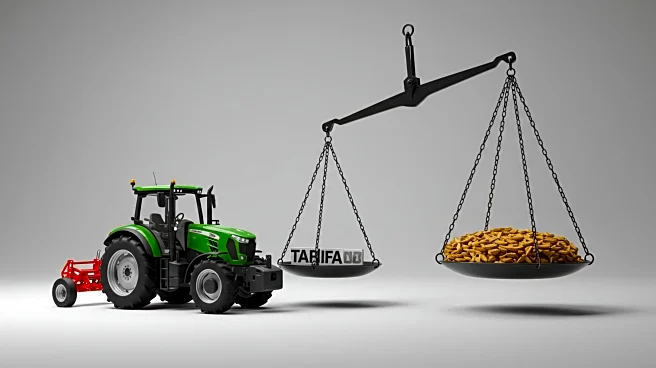What's Happening?
Saskatchewan's agricultural equipment sector is facing significant challenges due to the United States' expansion of steel and aluminum tariffs, which now include a 50% duty on over 400 additional products containing Canadian materials. This sector, which exports over $4.2 billion worth of machinery annually, is heavily reliant on the American market, with nearly 80% of its products destined for the U.S. Trade and Export Minister Warren Kaeding has expressed concern over the tariffs' impact on local manufacturers, who are struggling to absorb the increased costs. Kaeding has called on federal ministers Dominic LeBlanc and François-Philippe Champagne to take urgent action to negotiate tariff relief and provide support to affected businesses.
Why It's Important?
The imposition of these tariffs poses a threat not only to Saskatchewan's economy but also to global food security and sustainability, given the province's role in supplying essential farm equipment. The tariffs could lead to increased costs for American farmers, potentially affecting food prices and supply chains. The situation underscores the interconnectedness of international trade and the need for diplomatic negotiations to resolve trade disputes. The call for federal action highlights the importance of government intervention in protecting domestic industries and maintaining economic stability.
What's Next?
The Saskatchewan government is prepared to collaborate with Ottawa to push for change, emphasizing the need for swift federal action to stabilize the market. The outcome of negotiations with Washington could significantly impact the future of the agricultural equipment sector. Stakeholders, including manufacturers and farmers, are likely to closely monitor developments, advocating for policies that support industry growth and sustainability.










